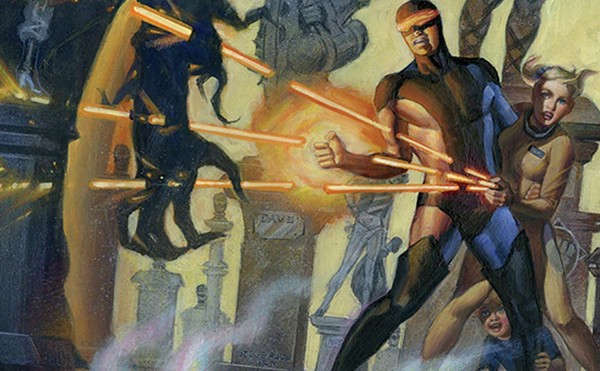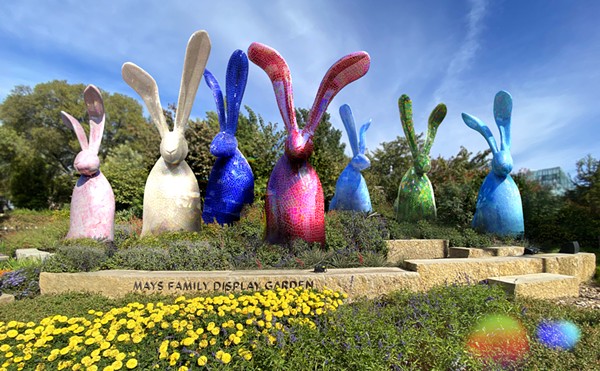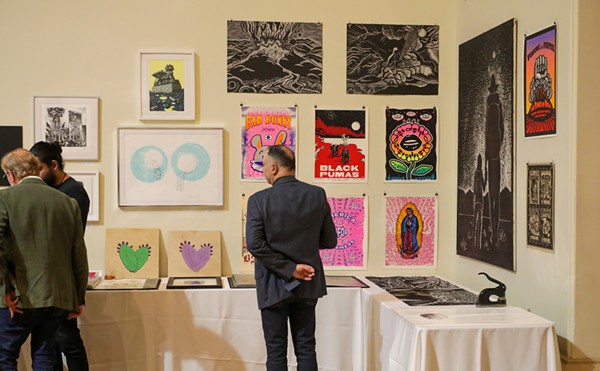Once upon a Quinceañera is Julia Alvarez’s candid look at a young girl on the harrowing day of her quinceañera. Described by Alvarez as “a wedding without a groom,” this lavish Latino ritual symbolizes a young girl’s passage from girlhood into womanhood. To write the book, the author of How the Garcia Girls Lost Their Accents embarked on a journey into the world of quinceañeras and discovered there was more to the tradition than she had presumed. Alvarez, who says she was a rebellious teenager, intertwines her own experiences with a young woman named Monica Ramos and three other “Quinces” (including a San Anto native). With Hispanic girls atop the charts in teenage pregnancies and high-school dropouts, she set out to discover why Latinas are in trouble and if this dainty, expensive party has anything to do with it.
Currently on a book tour that stops in Say-Town August 8, Alvarez chatted with the Current about this century-old ritual.
Para los gringos, could you explain what a Quinceañera is?
Well, `Latinos are` people of ritual; we’re people of fiesta … We celebrate, ritually, things that are important to us — even though we get a bad rap for being a macho culture and sexist — we celebrate our Latina womanhood, and one of those is the quinceañera … It’s a moment where we look at a life-cycle transition in our girls, they are becoming young women; the next generation of our community and our culture … so it’s a very important part of who we are as a community. We each come from our separate little traditions: Dominican, Mexican, Panamanian, Puerto Rican, Cuban, but we come here and suddenly we’re Latinos!
Is any part of it becoming Americanized?
`Latinos` have this wonderful tradition … where she’s very vulnerable and we want to be passing on to her her legacy as a Latina. We need to be thoughtful about what we’re doing with that tradition … The quinceañera came to the United States and took steroids. People are spending $5,000, $10,000, $20,000 and sometimes they can’t afford it … We have to be careful we don’t sell our traditions down the river, so to speak, that we don’t just make it a consumer celebration instead of a meaningful ritual. When does it become Americanized, like you say? When it becomes a market thing; instead of a rite, it becomes an entitlement thing, it becomes a right.
You talk a lot in the book about the quinceañera being a celebration of the rite of passage from girlhood to womanhood. Did the girls that you talked to share that message with you?
I think that for some of the girls this was a really meaningful event … It makes them consciente; it makes them think about that they are no longer children, that they’re passing into a new stage of their life … I think some of the girls were aware and their families treated it with a kind of thoughtfulness and seriousness, with joy and celebration. I think they found a very meaningful ritual in there. We have within our community certain moments that are really powerful female moments … we really celebrate our women.
You’re saying it’s a feminist ritual?
It’s a moment that is a celebration of Latina womanhood … I think the quinceañera is a powerful female moment … We’re saying to these women: you are the future; you are the soul of this community.
Historically, do you think the tradition existed to create strong women or was it just preparing them to be wives and mothers?
Part of the reason the mainstream complains that our young people are adrift is that they have no rituals, and because they don’t have any sense of who they are; they don’t have a history. We do have those `things` … and somehow we are failing them. We have these traditions that were put in place to take care of us as a people, but if we let them stay frozen in the 20th century then they’re not going to take care of where we are now. Originally, the tradition for the future of a young woman was to be a wife and a mother … For a girl to have a quinceañera in that culture prepared her for the role that she was inevitably going to end up in … that’s not the only option now … so maybe we need to rethink why it’s important for our young girls not to be one of the statistics … Think about what happens if you get pregnant and you can’t go on and have an education …
Did that skepticism you had before you wrote the book change?
Absolutely … I came out the other end thinking there’s something to this. It can be a very powerful way to protect ourselves as a community and protect our young girls. •
Once Upon a Quinceañera: Coming of Age in the USA
By Julia Alvarez
Viking
$23.95
















